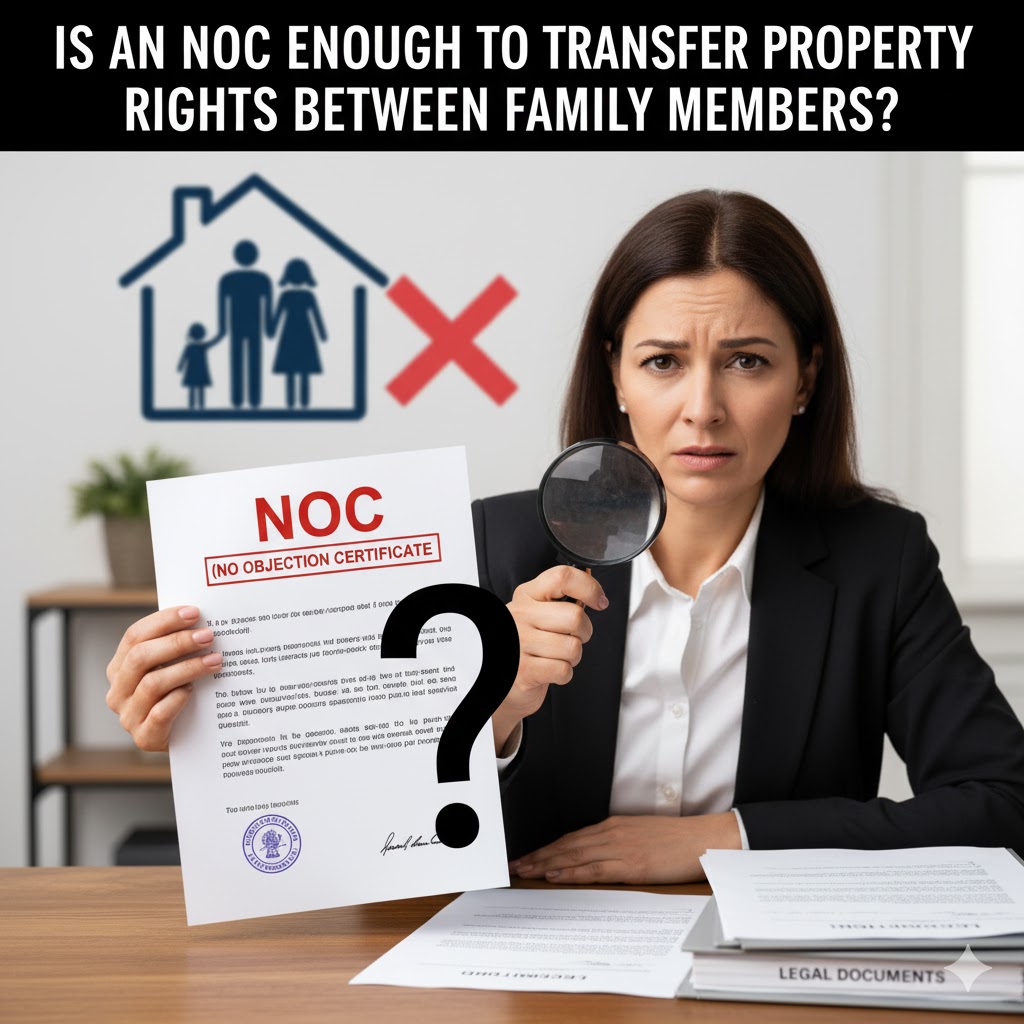Property transfers within families often happen out of mutual understanding and goodwill. However, when it comes to legally transferring ownership, particularly of a flat, the process requires proper documentation and registration to ensure validity in the eyes of law. If your father wishes to transfer his flat to you and your brother, and you want to relinquish your share in favour of your brother, a mere No Objection Certificate (NOC) will not suffice.
Why an NOC Is Not Legally Sufficient
An NOC only serves as a declaration that you have no objection to a particular action — in this case, the transfer of the property to your brother. However, it does not convey ownership rights. Property ownership can only be legally transferred through a registered document, such as a gift deed, release deed, or a family arrangement agreement. Without registration, the transaction holds no legal validity and can be challenged in the future.
Option 1: Execution of a Release Deed
Since you wish to relinquish your rights in favour of your brother, you can execute a Release Deed (also known as a Relinquishment Deed) in respect of the flat.
-
The deed must be signed by you and your brother and registered with the sub-registrar’s office.
-
It should clearly mention your intention to give up your share in the property voluntarily.
-
This document becomes a conclusive legal record of the transfer of your rights.
-
Stamp duty and registration charges will apply, though these are generally lower when executed among family members.
Option 2: Gift Deed by the Father
Your father can also gift the flat to your brother during his lifetime.
-
The gift deed must be executed and registered with the sub-registrar.
-
In Maharashtra, stamp duty for gifting property to a close relative (such as a son) is nominal.
-
Once the gift deed is registered, your brother becomes the legal owner of the flat.
This is the most straightforward and legally sound method for transferring property during your father’s lifetime.
Option 3: Family Arrangement Agreement
Another legally acceptable method is to execute a family arrangement or settlement deed.
-
This document records the mutual understanding between family members regarding the division or transfer of property.
-
All family members — you, your father, and your brother — can sign it before witnesses.
-
It can also be registered to give it full legal effect.
Such an arrangement helps avoid future disputes and ensures that all parties agree to the terms of distribution.
Option 4: Execution of a Will
If your father wishes to retain ownership during his lifetime but ensure that your brother inherits the property after his demise, he can make a registered will.
-
The will should clearly mention that the flat will be bequeathed to your brother.
-
It comes into effect only after your father’s death.
-
This method ensures that your father continues to have full rights over the flat during his lifetime.
Conclusion
An NOC alone is not a legally valid instrument for transferring property rights. To complete the process lawfully, you should execute and register either a release deed, a gift deed, or a family arrangement. Registration provides legal protection and clarity of ownership. Since you are currently in India, it is advisable to complete these formalities in person before returning abroad to avoid complications later.






